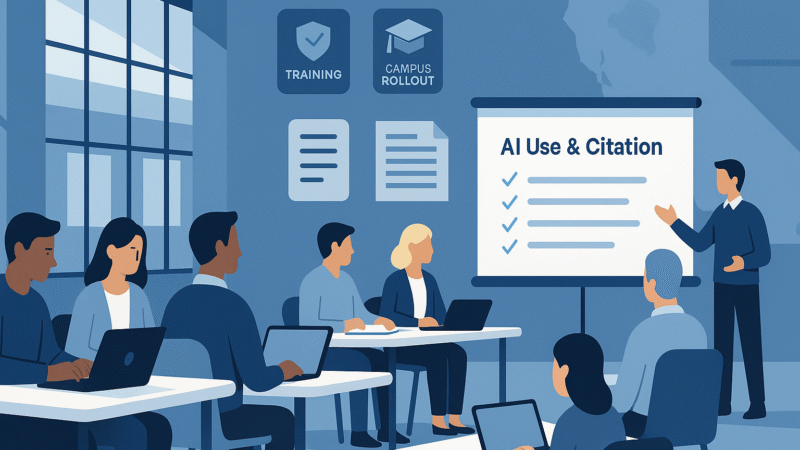As AI moves from pilot projects into everyday tools, real progress depends on faculty capacity. This piece centers instructors co-designing rubrics, syllabus policies, and course workflows—paired with LMS/Workspace integrations and emerging research infrastructure—so platforms amplify learning, integrity, and scholarship rather than replace human judgment.
Tag: AI policy
AI on campus shifted from trial runs to infrastructure. California institutions get free training from Google and Microsoft, Indiana University enables ChatGPT Edu for 120,000 users, and colleges push for clear rules, disclosure, and data safeguards. Plus Latam-GPT for regional access and Pearson study tools at scale.
GPT-5 hits campus tools as California expands AI training, UNESCO urges competency standards, and NSF funds traineeships—what should faculty update this term?
AI isn’t just reshaping how we learn—it’s exposing gaps in how we teach, lead, and build academic systems around it. From enrollment shortfalls to faculty skepticism and global AI education models, this week’s update spotlights what higher education must address to keep pace.
Investors, regulators, and educators advanced artificial intelligence across higher education this week—from a billion-dollar push for multilingual degrees to new grant-writing guardrails—showing that real progress pairs bold tools with clear, faculty-led governance.
From free AI tools for students to ethical breaches in research and shifting faculty workloads, this week’s roundup reveals how higher education is both adapting to and helping shape the future of AI. The key? Responsible strategy, academic voice, and intentional leadership.






